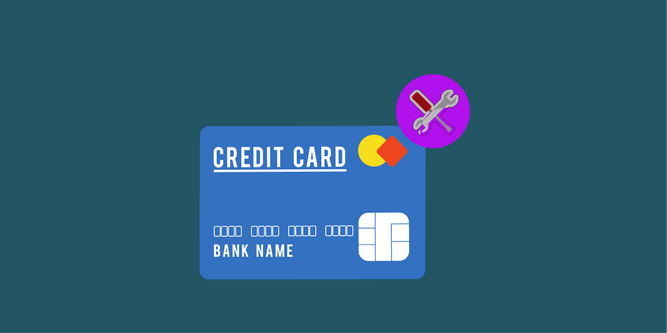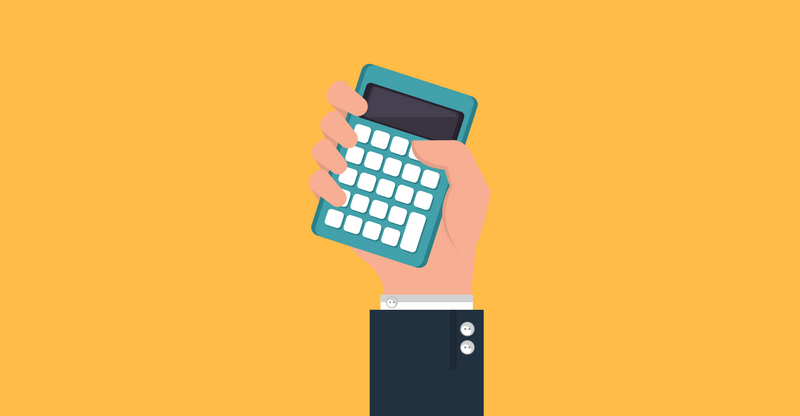
Bad credit is easily one of the worst traps you can possibly get yourself into. Sadly, fixing it isn’t so easy and anyone that wants you to believe otherwise is probably a con. Get away from them as quickly as you can.
Overdue student loans, maxed out credit cards and foreclosure are some of the most common causes of below average or poor credit.
The downside of having bad credit is that you’ll have a terrible time getting approved for anything that requires credit like a mortgage, credit card, personal loans, etc.
And even if you do get approved, you can expect to pay a much higher interest rate than the average borrower. If you do get through the whole approval process, you’re going to pay a higher interest rate.
It’s not all bad news, though, because it’s quite possible to repair your credit scores by yourself. It may take a bit of sacrifice and patience, but with enough diligence, you will make it all the way through.
Here are some of the best ways to fix bad credit:
1. Figure out where you stand
Before you begin the whole process, you will need to know how much you owe and how bad your credit rating really is.
You have to get copies of your credit reports from all three major bureaus - Equifax, TransUnion and Experian.
You can get your credit reports free once every year from Annual Credit Reports. There are a lot of less reputable sites out there, so we recommend just sticking to Annual Credit Report. Apps like Credit Sesame and Credit Karma are also a couple of good alternatives with some added features.
Depending on the source of the data on your credit rating, it should rate somewhere between 300 to 850. A score between 700 and 740, again depending on the scoring method used is considered "good credit."
This should be adequate to qualify you for the best interest rates on credit cards and most affordable mortgages.
2. Dispute errors in your credit report
The next item on the credit repair list is to inspect your credit history for any information that might be incorrect. It’s a long shot, but no system is perfect, and errors are not unheard of.
In fact, most times, bad credit is simply your own fault, and if the information is accurate, you shouldn’t bother arguing. In the event you do notice errors, though, no matter how small, dispute them—it’s all worth clearing up.
The first thing you should check on your credit report is your identity information, i.e. your name, Social Security number and address, and your credit history.
Next, review all your major purchases, outstanding debt and the list of credit cards you have. If you notice any mistakes, make a copy of the report and highlight the errors.
Once that’s done, get any information you can that will back up the authenticity of your claims. This includes receipts and bank statements. Make copies of these items, too. This is the most important step, since no credit bureau will take any step without any proof.
Lastly, write a letter to the specific credit bureau to show the mistakes you’ve spotted.
Explain the mistakes and include copies of the report you highlighted together with any notes you may have taken. Some bureaus nowadays accept online reports, but it’s not half a bad idea to send the letter by mail, so you have a backup copy.
From that point, the reporting agency will have 30 days to respond to your letter, so don’t get too anxious early on.
The FTC also provides further information regarding how you can contact the credit bureaus about any mistakes you noticed. If you have too much trouble, you can always give one of the bureaus a call. Here's how to contact each of the major credit bureaus:
- Equifax: 1-800-685-1111
- Experian: 1-888-397-3742
- TransUnion: 1-800-916-8800
3. Stop the cycle
After you've addressed any errors on your credit report, the next step is to address the issues that got you here in the first place. Assuming your credit wasn't just ruined by identity theft or errors on your report, you likely made some mistakes with your credit in the past.
Fixing bad credit can be broken down into three simple steps, really:
- Pay all your bills on time
- Pay your debts
- Don’t apply for more credit
However, before you’re able to effectively do any of these things, the first step to take is to stop overspending. In other words, sit down and draft a budget.
A great place to start would be to calculate all of your income. This includes every source you get money from like your job(s), social security, trust fund or elsewhere.
From that sum, subtract your fixed monthly expenses like rent, car payments and insurance.
Then estimate your non-fixed expenses like gas, groceries and entertainment.
From the information you have at hand, create limits as to how much you can spend in each category.
The trick at this point is to be both realistic and frugal. Try to set as low a budget as you can, but not so low you will be virtually starving yourself, or avoiding entertainment altogether.
This will result in a great change in your spending habits. It may take a bit of time to get used to, but it has resounding effects.
4. Start paying all your bills on time
One of the biggest contributors to your credit score is your payment history. How often do you pay your bills on time?
If you want to fix your bad credit once and for all, you have to either be early or right on time when paying bills. Make sure you pay all your bills as soon as you can.
Aside from this, consistency is another important factor. As much as you pay the first few months on time, skipping out on others won’t do much good.
In fact, if you’re late during any time of the year, you’re only racking up more debt from fees and extra interest. Your credit score will only increase when you are both consistent and on time.
5. Pay off your credit cards
You will need to get down to the business of paying up all that credit card debt, eventually. The only way to completely rid yourself of bad debt is to pay them off.
Make room in your budget for any outstanding balances and chip away at those debts until they're paid off.
An important part of this is knowing your credit card limits. Remain within the limits and stay a good distance away from the maximum.
Pay them slowly, but don’t cancel them, if given the choice. The total amount of credit you have available to you also affects your credit.
So pay off the credit cards, but keep the accounts open. Just don't start using them again!
6. Stop applying for new credit
Lastly, don’t pile up any more debt than you already have. Even if your favorite store offers a general discount when you do, it’s against your best interest to have another credit card.
Every card you apply for is listed as a "hard inquiry" on your report, and having too many within two years will bring down your score.
Generally speaking, even if you have a good credit score, you should only apply so many times in two years.
You can fix your bad credit
As difficult as it may seem while you're in it, it's definitely possible to fix bad credit. Also, beware of "credit repair" services you see across the internet. Most of them aren't legitimate and won't do anything to actually repair your credit.
There's no way around it. The only way to improve your credit score is to develop great habits and make big changes. Use the six tips above as a starting point.



